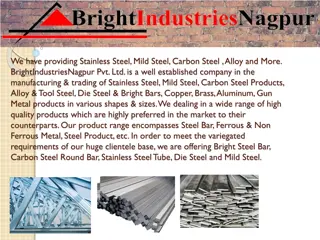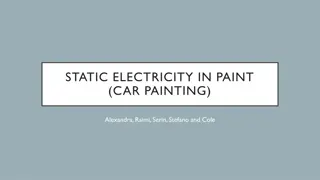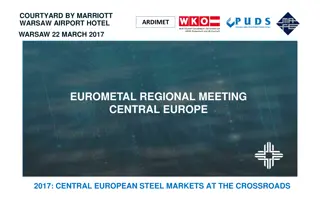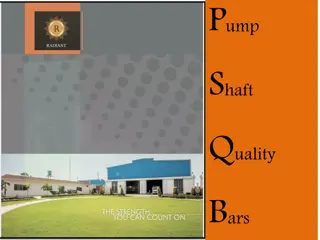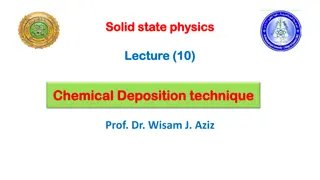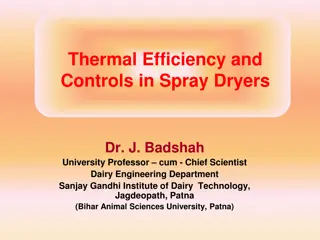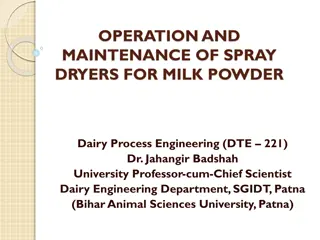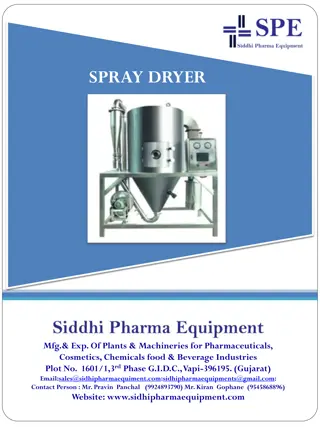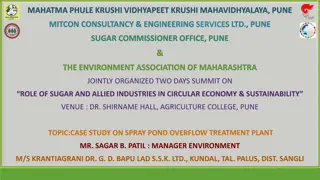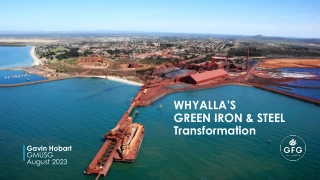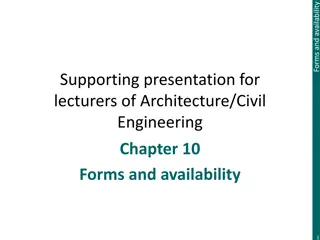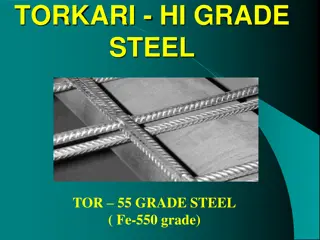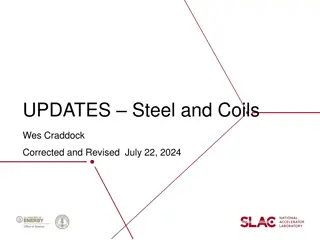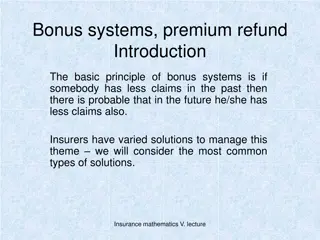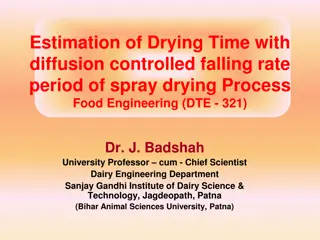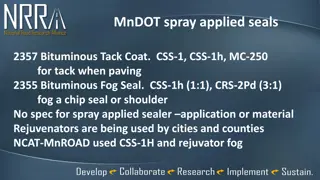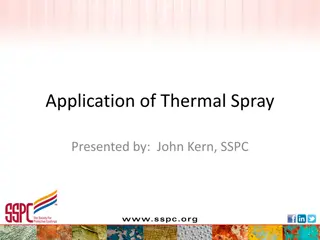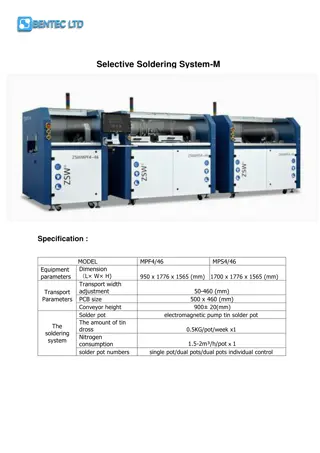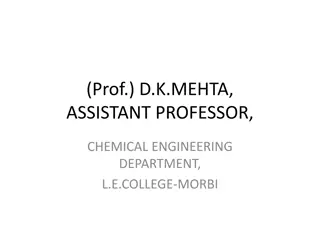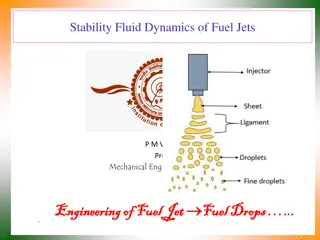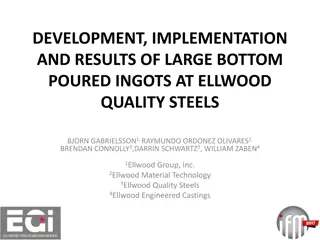Premium Quality Tool Steel - Spray Formed PSB 27
SB Specialty Metals offers premium quality tool steel with enhanced powdered metal PSB 27, providing higher toughness, wear resistance, improved toughness, chip resistance, and enhanced mechanical properties. The spray forming process ensures a very uniform and homogeneous microstructure, increased hardness, dimensional stability in heat treatment, and freedom from macro-segregations. Applications include the non-woven industry, steel processing industry, recycling industry, and various manufacturing processes like cutting, stamping, and forming. A case study highlights the advantages of using PSB 27 over conventional materials in rotary die cutting, showcasing significant financial benefits in the total lifecycle model.
Download Presentation

Please find below an Image/Link to download the presentation.
The content on the website is provided AS IS for your information and personal use only. It may not be sold, licensed, or shared on other websites without obtaining consent from the author. Download presentation by click this link. If you encounter any issues during the download, it is possible that the publisher has removed the file from their server.
E N D
Presentation Transcript
Spray Formed - Premium quality tool steel Enhanced powdered metal PSB 27 Higher toughness Only from SB Specialty Metals Your First Choice for Specialty Metals Higher wear resistance Improved toughness and chip resistance
The Spray Forming Process Melting furnace Tundish Atomizer system (inert gas) Spray chamber Spray formed billet Collector
What are the advantages Very uniform/homogeneous microstructure Improved mechanical properties Wear resistance Toughness Increased hardness Freedom from macro-segregations Improved dimensional stability in heat treatment
Applications Non-woven industry Rolling - steel processing industry Recycling industry Slittering Blanking and Forming Steel Stamping Cutting Powder Compaction Brick Forming Sand blasting Threading Forming autoparts
Case Study - Rotary Die Cutting Non-woven Material Die for a pad machine final cutter. Rotary Crush Die 10 Diameter Rotary Die PSB 27 Conventional D2 34 million Micro Crack indications Production Condition 84 million No indications of microcracks
Financial Benefits Model Total Lifecycle Model- Rotary Die Non-woven PSB27 600.00 $ 5,000.00 $ Conv. D2 300.00 $ 5,000.00 $ Material Price (Per mm) Machining + Grinding Coating Heat Treatment other Lifecycle Cost of the Materials (LC) Total Tooling Cost per part produced 0 0 $ 120.00 $ 120.00 0 0 5,720.00 $ 5,420.00 $ $0.0050 Usable Height in mm (UH) Material Costs/mm (MC) Trip Length (Prod. Amount (Unit)/regrind = TL) Standard Grind Off in mm (SGO) Productive Performance Material Related Costs/Produced unit (MTR) 5 5 $0.0040 1,144.00 $ 975,000.00 1,084.00 $ 325,000.00 Cost per part 0.15 0.30 $0.0030 6,500,000.00 1,083,333.00 0.0002 $ PSB27 $ 0.0010 $0.0020 D2 Grinding Costs Tooling Transport Cost Changes of tooling Recoating Other Total Regrind cost Processing Cost/Produced Unit (PTR) $ $ $ $ $ $ $0.0010 700.00 50.00 200.00 $ $ $ $ $ $ $0.0023 500.00 50.00 200.00 $0.0010 $0.0000 - - - - MTR PTR DC Total 950.00 750.00 cost Downtime costs (DC) Downtime related costs/Produced Unit $ $ 450.00 0.0005 $ $ 450.00 0.0014 Total Cost per produced unit $ 0.0016 $ 0.0047
Case Study - Cutting wallpaper structured with wood fibers Additional notes from study PSB27 The production down time was reduced due to a keener edge on the knife, resulting in less maintenance time 16 Dia x .183 Cutting Wheel PSB27 Conventional D2 240 hours Conventional D2 Several production stoppages due to blockages of weed fibers between knife. Run time before regrind Tool hardness 360 hours 60 HRC
Case Study Threading Die, Threading material High Strength Steel, with profile tolerance of +/- 0.05 Die Life Die photo PSB27 Conventional D2 61 HRC 200 hours Hardness Die Lifetime 63 HRC 600 hours


